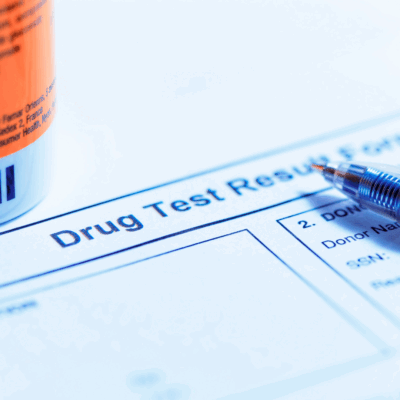What HR Leaders Need to Know About Drug Testing Compliance
Drug testing has long been a fixture in workplace safety and risk management programs. However, the rising tide of marijuana legalization across U.S. states has left many employers reevaluating policies and procedures that once seemed straightforward. For HR leaders and talent managers, the challenge is twofold: protect the workplace while honoring the evolving legal rights of applicants and employees.
What once was a standardized, federally influenced drug policy now demands a flexible, state-by-state lens, especially when it comes to marijuana.
In states like New York, New Jersey, Illinois, and Nevada, cannabis use outside of working hours is legally protected for most employees. Others, such as California, have enacted laws that restrict the use of traditional drug screening methods like urine testing for detecting marijuana metabolites that don’t indicate current impairment.
The result? A compliance matrix that’s constantly shifting and increasingly nuanced.
Cannabis Legalization and the Employer’s Dilemma
Marijuana remains illegal under federal law, classified as a Schedule I controlled substance. Yet, as of 2025, over 35 states have legalized it for medical use, and nearly half of those also allow recreational consumption. Employers that operate across multiple jurisdictions often find themselves caught in a web of conflicting obligations, including federal expectations versus state-level employee protections.
For example, in New York, employers cannot test most applicants for marijuana as a condition of employment unless required by law or for safety-sensitive positions. In contrast, federal contractors and organizations regulated by the Department of Transportation are still required to follow federal drug testing guidelines, regardless of state laws.
Navigating these differences requires more than policy updates. It demands a robust compliance infrastructure that includes state-specific risk assessments, continual policy reviews, and a partner who understands how to operationalize drug testing programs legally and efficiently.
Rethinking Drug Testing Compliance
Modern drug screening is shifting away from zero-tolerance models and toward fitness-for-duty assessments. The intent is not to penalize employees for legal, off-duty behavior but to ensure they are capable of performing their duties safely and responsibly during working hours.
S2Verify supports this pivot with automated, compliance-forward drug testing solutions that blend technology with policy intelligence. With options such as random testing, post-incident testing, and tailored panels that exclude cannabis, organizations can mitigate workplace risks while respecting employee privacy and adapting to evolving state protections.
This approach also helps reduce turnover and avoid unnecessary litigation. When employees believe that drug testing is fair, relevant, and legally grounded, they’re more likely to trust the process and the organization behind it.
Practical Drug Testing Compliance Strategies
To stay compliant and effective, employers should:
- Understand the drug testing laws in each state in which they operate in.
- Clearly define “safety-sensitive” roles and document why they require stricter testing protocols.
- Shift toward impairment-based policies rather than broad metabolite detection.
- Communicate testing policies transparently with employees and candidates.
- Partner with accredited screening providers who stay current with regulatory changes.
Technology’s Role in Keeping Employers Compliant
Automation is a game-changer in managing complex compliance requirements. Tools that allow employers to assign drug screening packages by job role, state, or industry ensure the right test is administered to the right person under the right circumstances.
S2Verify integrates directly with over 60 applicant tracking systems and offers dynamic compliance tools through a centralized dashboard. HR leaders can track scheduling, collection, results, and compliance status in real-time. These tools also reduce no-shows and enhance candidate experience with mobile-friendly portals and digital donor passes.
What’s more, all drug screenings conducted through S2Verify use SAMHSA-certified labs and FDA-approved devices.
The Compliance Risk of Staying Static
The legal terrain isn’t just evolving, it’s actively challenging outdated compliance frameworks. Employers who fail to adapt risk more than just lawsuits; they could face damaged reputations, regulatory penalties, and talent loss.
Ban-the-Box laws, fair hiring guidelines, and marijuana-specific protections are all designed to reduce discrimination in the hiring process. Applying a one-size-fits-all drug screening policy in this environment could be considered both noncompliant and inequitable. In states like California and New Jersey, courts have sided with employees who were disciplined or terminated due to off-duty cannabis use, even when employers believed they were acting within legal limits.
Compliance isn’t optional; it’s an active, ongoing commitment.
Earning Trust Through Transparency and Support
Employees want clarity. When companies explain their drug testing policies in plain language and demonstrate a genuine commitment to fairness and safety, they build trust, even in regulated or safety-critical roles.
Transparency includes:
- Explaining what substances are tested and why.
- Sharing how long results take and who reviews them.
- Ensuring candidates understand their rights to challenge inaccurate results.
- Making Medical Review Officers available to interpret positive tests.
Future-Proofing Your Drug Testing Program
If your drug testing policies haven’t changed in the last year, it’s time for a full review. Staying compliant means staying current with state legislation, court rulings, and workplace trends.
As more states continue to legalize marijuana and public attitudes toward drug use evolve, employers will need screening partners who offer more than just test results; they’ll need strategic guidance, automated solutions, and compliance-first thinking.
At S2Verify, we help HR teams build safer, smarter, and legally sound workplaces, without overburdening their internal resources. Because hiring with confidence starts with clarity, not guesswork.







